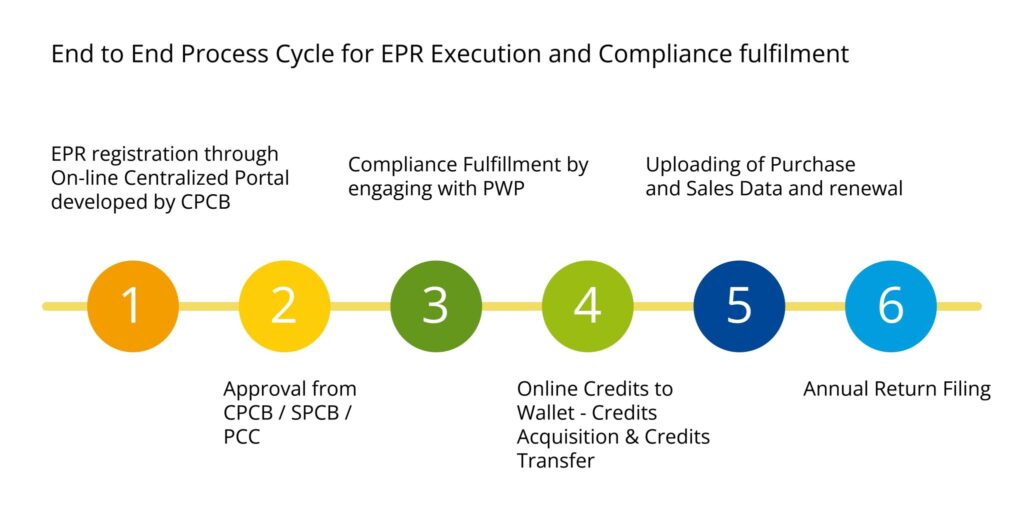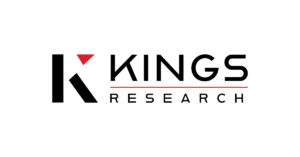
In India, managing plastic waste has become a top priority due to increasing pollution and environmental concerns. The government has made Extended Producer Responsibility (EPR) registration mandatory for producers, importers, and brand owners. While the process can be complex, partnering with experts makes it easier. With EPR Registration, Shakti Plastic Industries, companies can simplify documentation, compliance, and recycling obligations. This blog explores the best ways to simplify the process and ensure stress-free compliance.
What Is EPR Registration and Why Does It Matter?
EPR registration compels enterprises to accept responsibility for collecting and recycling the plastic trash they introduce into the market. To operate legally, enterprises must get an EPR certificate from the CPCB in accordance with the Plastic Waste Management Rules 2016 and revisions. Shakti Plastic Industries simplifies this procedure, ensuring compliance while also lowering the possibility of penalties. Beyond legality, it enables businesses to support sustainable practices while addressing consumer demand for environmentally conscious brands.
Common Challenges in EPR Registration
Many organisations find EPR registration difficult due to long documentation, a lack of clarity, and changing compliance requirements. Companies are required to submit detailed waste management strategies, recycling objectives, and yearly reports to the Central Pollution Control Board. Missing or inaccurate submissions can result in rejections or delays. Shakti Plastic Industries’ choice of EPR Registration allows firms to overcome these problems with experienced advice, assuring seamless approvals and continuing compliance without additional stress.
How Shakti Plastic Industries Simplifies the Process
Choosing the correct partner is one of the most effective ways to ease EPR registration. Shakti Plastic Industries, a leader in plastic recycling and waste management, offers comprehensive support. They streamline the entire process, from correct document preparation to recycling network management. With decades of experience, their staff guarantees that firms exceed CPCB criteria while attaining sustainable objectives. This structured guidance simplifies and streamlines a complex process.
Step 1: Understand Compliance Requirements Clearly
Understanding compliance standards is the first step towards streamlining EPR registration. Businesses must understand their category (producers, importers, or brand owners) and the recycling targets set by the CPCB. Many businesses suffer here due to technical jargon and frequent rule changes. EPR Registration explains Shakti Plastic Industries’ requirements in simple words. Clear guidance avoids uncertainty, allowing firms to precisely prepare and submit paperwork on time, resulting in a more efficient registration process.
Step 2: Organise Documentation Effectively
Proper documentation is required for EPR registration approval. Companies must submit GST certificates, incorporation information, product lists, and waste management strategies. Many applications are rejected due to incomplete paperwork. Partnering with Shakti Plastic Industries guarantees that businesses’ paperwork is organised and precise. Their crew thoroughly analyses everything before submission, reducing the likelihood of errors. This organised method not only expedites approval but also increases assurance that compliance has been handled precisely.
Step 3: Use Digital Platforms for Faster Submissions
Today, EPR registration in India is completed online using the CPCB’s digital platform. However, businesses frequently experience technological difficulties or delays during submission. Shakti Plastic Industries makes this process easier by assisting with portal navigation, form completion, and digital uploads. Taking the digital way saves time, avoids human errors, and guarantees quicker responses from authorities. Companies can use technology to speed EPR registration and focus on essential business operations.
Step 4: Align Recycling Strategies with CPCB Guidelines
The CPCB mandates firms to satisfy annual recycling targets. Simplifying EPR registration entails aligning recycling operations with these requirements from the beginning. Shakti Plastic Industries offers access to a well-established recycling network throughout India. Businesses can accomplish compliance while minimising operational costs by outsourcing collection and recycling obligations. This collaboration guarantees that targets are met on schedule, allowing businesses to avoid penalties while also supporting a sustainable plastic waste management system in India.
Step 5: Monitor Compliance Continuously
EPR registration does not end with approval; it requires ongoing compliance. Companies must submit annual reports and have proof of recycling. For many, the ongoing obligation becomes overwhelming. Shakti Plastic Industries now has easy monitoring because to EPR registration. Their team monitors recycling activity, generates compliance reports, and assures timely submissions. This proactive monitoring enables firms to remain compliant year after year, making sustainability an important part of operations without adding stress.
Why Businesses Prefer Shakti Plastic Industries
Choosing Shakti Plastic Industries for EPR registration provides more than simply compliance. Businesses benefit from skilled guidance, a national recycling infrastructure, and streamlined processes. The company’s repute and experience instil confidence that compliance will be handled effectively. Furthermore, their emphasis on sustainability is consistent with modern business values. As a result, they are the chosen partner for businesses looking to contribute to India’s environmental conservation initiatives in addition to ensuring legal compliance.
High-Search Keywords for EPR Registration
When businesses look into compliance, they frequently search for terms like EPR registration India, CPCB EPR certificate, EPR plastic waste management, EPR authorisation online, plastic waste management rules 2025, and plastic recycling companies in India. All of these terms represent actual user intent. EPR Registration, Shakti Plastic Industries, directly addresses these needs, making it the ideal alternative for brands seeking professional guidance in navigating EPR compliance while contributing to a greener future.
The Role of EPR in Building Sustainability
Beyond compliance, EPR registration is crucial to establishing a sustainable economy. Shakti Plastic Industries’ EPR Registration helps businesses reduce plastic waste, conserve resources, and support circular economy models. Every successful registration strengthens India’s waste management ecosystem. Shakti Plastic Industries simplifies EPR compliance for businesses, allowing them to not only comply with the legislation but also incorporate sustainability into their company culture and brand reputation.
EPR registration may appear to be a demanding procedure, but with the correct approach, it may be simplified. Businesses may streamline the path by knowing compliance, managing paperwork, utilising digital platforms, aligning recycling, and regularly reviewing progress. Shakti Plastic Industries’ EPR Registration provides expert assistance and nationwide support, making compliance stress-free. Simplifying EPR registration is more than just meeting legal requirements; it is also about developing sustainable practices that benefit businesses, consumers, and the environment.



